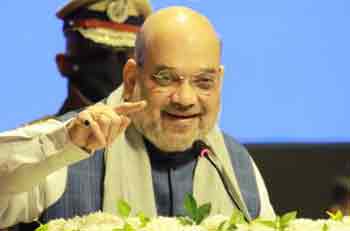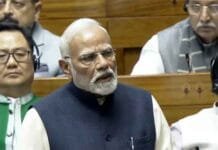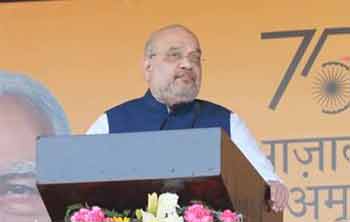The Indian underworld is facing unprecedented pressure as Union Home Minister Amit Shah’s crackdown on drug traffickers continues. Among the most prominent targets is Dawood Ibrahim, whose network has long been involved in narcotics and terror funding. While authorities have disrupted much of the syndicate, intelligence agencies warn that complete dismantling is still a challenge.
Drug Cartels Across India Under Siege
India’s drug trade is controlled by several regional cartels, with Dawood Ibrahim’s syndicate remaining the most influential. The crackdown has forced a strategic shift in the gang’s operations. Dawood continues to control a significant portion of the illegal trade, which funds terrorist activities across India.
It is estimated that around 80% of terrorist organizations in India receive funding directly or indirectly from Dawood’s network. The intensification of law enforcement actions has pushed him to explore new international avenues to maintain his operations.
Pakistani Intelligence Support Continues
Reports suggest that Pakistan’s ISI and government continue to provide covert support to Dawood, primarily because his drug money fuels cross-border terrorism. Intelligence inputs indicate that Dawood’s network is expanding globally, targeting South Africa and Mexico as key operational hubs.
Dawood’s Influence in South Africa
Dawood Ibrahim has historically maintained strong ties in South Africa, using the region as a base for logistics and financial operations. The South African network remains a vital part of his international operations, facilitating both drug trafficking and money laundering.
Mexican Cartels: A New Frontier
The expansion into Mexico marks a new chapter for Dawood’s syndicate. Intelligence sources reveal that contacts have been established with El Mencho, the notorious Mexican drug mafia. The collaboration is expected to diversify Dawood’s routes, with drugs being transported into southern India while traditional routes through Punjab, Jammu & Kashmir, and Gujarat continue to operate.
The Mexican connection was first flagged when the Indian Coast Guard seized a large drug consignment from a fishing vessel near the Andaman and Nicobar Islands on November 25th. The seizure highlighted the emerging role of Mexican networks in India’s narcotics trade.
ISI and Local Collaborators
The ISI is reported to be working with individuals like Haji Salim and Salim Dola, who are tasked with managing international trafficking syndicates in India. These partnerships ensure a steady flow of narcotics into India while maintaining links with global cartels.
Implications for Law Enforcement
The expansion of Dawood’s network into South Africa and Mexico poses new challenges for Indian law enforcement. Authorities now face a dual threat: dismantling domestic cartels and curbing international trafficking channels that could strengthen terrorist operations.
Union Home Ministry sources indicate that the focus will be on intelligence-sharing, international collaboration, and stringent coastal monitoring to prevent further expansion of Dawood’s syndicate.
Conclusion
The crackdown on India’s drug mafias has disrupted the backbone of the underworld, but Dawood Ibrahim’s evolving strategy underscores the resiliency and global reach of his network. As the syndicate moves into South Africa and Mexico, Indian authorities face an urgent need for cross-border coordination to curb drug trafficking and terrorist funding.















